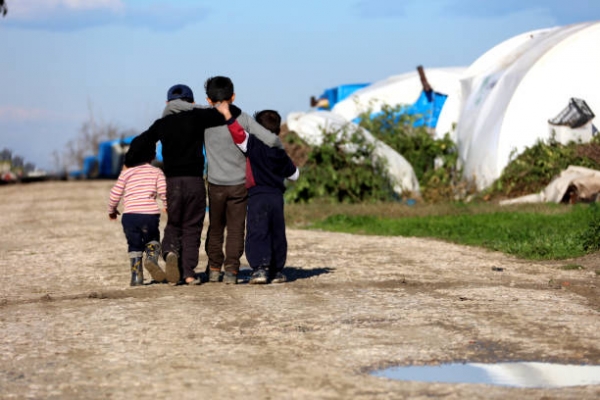By the end of 2019, Lebanon was hosting around 1.5 million Syrian refugees (Lebanon Crisis Response Plan 2017-2020, 2019 update). Indeed, the nine-year-long civil war in Syria has triggered one of the worst humanitarian crises of our time. In response to the crisis, the World Food Programme (WFP) has launched the multi-purpose cash (MPC) assistance, which consists in a 12-month unrestricted cash transfer in support to 23,000 Syrian refugee households in Lebanon.
The ODI report explores WFP’s MPC assistance to Syrian refugees in Lebanon and its effects on social cohesion and stability both among refugees as well as between refugees and their host communities.
The first finding from the 270 interviews, made in the Bekaa Valley, shows that MPC helps the recipient to interact and socialize with other Syrian refugees. The fact that not all those in need receive MPC creates feelings of compassion and discomfort towards non-recipients from those who, instead, receive MPC. Regarding the relation between Syrian refugees and Lebanese host communities, the findings reveal an ambivalent attitude: some Lebanese respondents saw MPC as unfair (especially in contexts where poverty levels are high); while others saw MPC as a good way for reducing tension between the refugees and the community.
The areas of the research where stronger (and conflicting) feelings emerged – on the part of the Lebanese respondents – are those related to the labour market and local economy and to the access to services (health, education and accommodation/shelter). For what concerns the labour market and workplace, recent publications point out to the fact that the Lebanese perceive Syrian refugees as a menace in the labour market, which already offers little opportunities. This negative perception could be detrimental to social cohesion and social stability. The findings reveal indeed that MPC enables Syrian refugees to accept lower paid work and, at the same time, to turn down exploitative work, denoting an important emancipatory effect.
Optimistically, the report demonstrates that MPS is perceived as beneficial to the local economy, since it enables Syrian refugees to spend money on local services. This potentially contributes to social cohesion and social stability. MPC also has a positive implication on relations between Syrian refugees and Lebanese landlords, reinforcing dynamics of trust: it allows recipients to reduce accumulated debts and to pay rent on time. Conversely, discontinuation or non-receipt is connected to delayed or partial rent payments and a fall in trust. Moreover, MPC recipients are more easily able to bear the costs of accessing healthcare services, thus improving relations between Syrian refugees and healthcare services providers. On the other hand, non-receipt and discontinuation produces healthcare-related debts, which generate tensions with the host communities (since Syrian refugees are perceived as an additional pressure on local services).
Lastly, in the field of education and schooling, the main obstacle to the interaction between Syrian and Lebanese students comes from the nature of the double-shift system, which had been implemented to deal with the influx in students. In general, respondents have a positive perception of teachers: they are deemed to be fair and treat all students equally.
However, tensions can arise in that some Lebanese respondents believe that the increase in the number of children accessing schools has been leading to a decline in the quality of education.
Therefore, positive dynamics stand side by side with negative ones, which are likely to generate tensions between vulnerable Syrian refugees and vulnerable Lebanese. The study highlights, in particular, the fact that the effects of MPC on social cohesion and social stability cannot be entirely analysed on a social scale, since women and girls have fewer interactions than their male counterparts. Finally, many of the negative effects on social cohesion are not to be connected to MPC, but rather to the wider national context, which includes Lebanese social and labour policies: the economic and political situation of Lebanon is probably the main cause at the base of the lack of social cohesion and stability between Syrian refugees and host communities. More should therefore be done at the level of national policy implementation.
To know more, please read:
https://www.nrc.no/globalassets/pdf/reports/social-cohesion-and-stability-between-syrian-refugees-and-host-communities/odi---social-stability---26112020.pdf
Author: Laura De Pascale; Editor: Catherine Meunier




